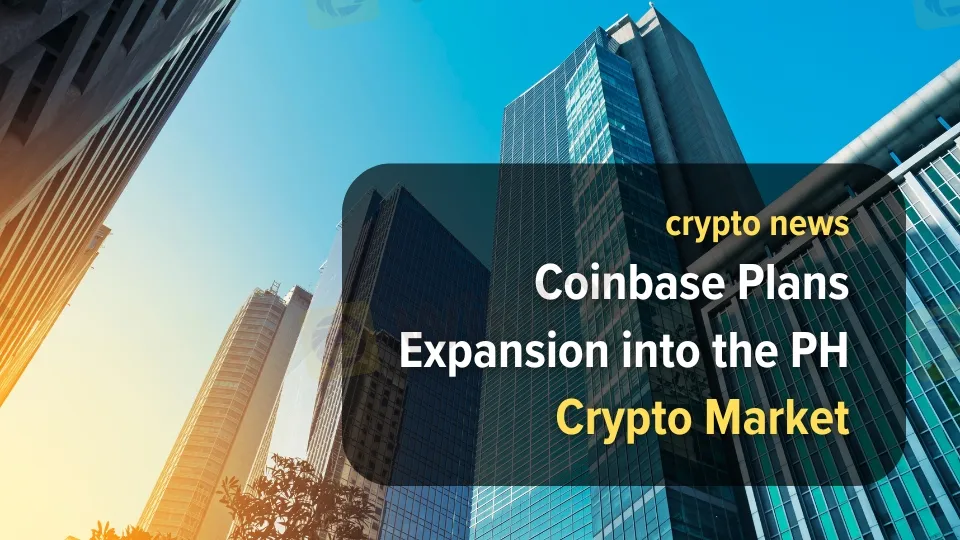简体中文
繁體中文
English
Pусский
日本語
ภาษาไทย
Tiếng Việt
Bahasa Indonesia
Español
हिन्दी
Filippiiniläinen
Français
Deutsch
Português
Türkçe
한국어
العربية
Coinbase Plans Expansion into the Philippine Crypto Market
Abstract:Coinbase expands to the Philippines: Discover how young Filipinos drive crypto growth, blockchain adoption, and Finance Secretary Recto's vision for a digital economy.

Coinbase, a leading cryptocurrency exchange, is preparing to join the Philippines, according to the Department of Finance (DOF). This action emphasizes the country's rising relevance in the global Bitcoin ecosystem.
Coinbase and Blockchain in the Philippines
The DOF said in a Facebook post that Finance Secretary Ralph Recto met with Coinbase co-founder and CEO Brian Armstrong at the World Economic Forum (WEF) in Davao. The conversation focused on Coinbase's aspirations to join the Philippine market, which are being fueled by the country's fast-developing digital economy and growing acceptance of blockchain technology.
Coinbase, one of the leading cryptocurrency platforms in the United States, has received a lot of attention. Recto, who is also President Marcos' Special Envoy to the WEF, underscored the government's commitment to encouraging financial innovation. He stated that this commitment will involve a strong regulatory framework designed to combine blockchain and cryptocurrency adoption with consumer safety and financial stability.

Rising Crypto Investments in the Philippines
Recto stated that young Filipinos are significantly investing in cryptocurrencies, with a total investment volume similar to the country's national budget for 2025, which is P6.236 trillion. He told Bloomberg TV that the spike is being driven by a young population (the average age is 25) and a high level of English ability, which allows more Filipinos to traverse the global cryptocurrency market.
He went on to say that Filipinos had invested over six trillion pesos in cryptocurrencies, demonstrating the sector's enormous potential. Recto expressed confidence that regulatory approaches under pro-crypto global leadership, including prospective alterations under Donald Trump, will maintain this momentum.
Final Thoughts
Coinbase's possible entrance into the Philippine cryptocurrency market is a watershed moment for the country's digital economy. With blockchain use on the increase and a tech-savvy populace willing to invest, the Philippines has the potential to become a Bitcoin innovation hotspot in Southeast Asia. This development not only emphasizes blockchain's expanding significance but also demonstrates the country's willingness to embrace the future of banking.

Disclaimer:
The views in this article only represent the author's personal views, and do not constitute investment advice on this platform. This platform does not guarantee the accuracy, completeness and timeliness of the information in the article, and will not be liable for any loss caused by the use of or reliance on the information in the article.
Read more

Authorities Alert: MAS Impersonation Scam Hits Singapore
MAS scam alert: Scammers impersonate officials, causing $614K losses in Singapore since March 2025. Learn how to spot and avoid this impersonation scam.

Billboard Warns of Crypto Scams Using Its Name – Stay Alert!
Billboard warns against fake crypto scams using its brand. Learn how to spot fraud and protect yourself from fake promotions.

Rising WhatsApp Scams Highlight Need for Stronger User Protections
UK consumers lose £2,437 on average to WhatsApp scams. Revolut demands stricter verification and AI monitoring to combat rising fraud on Meta platforms.

Interactive Brokers Launches Forecast Contracts in Canada for Market Predictions
Interactive Brokers introduces Forecast Contracts in Canada, enabling investors to trade on economic, political, and climate outcomes. Manage risk with ease.
WikiFX Broker
Latest News
Interactive Brokers Launches Forecast Contracts in Canada for Market Predictions
Authorities Alert: MAS Impersonation Scam Hits Singapore
INFINOX Partners with Acelerador Racing for Porsche Cup Brazil 2025
The Impact of Interest Rate Decisions on the Forex Market
Billboard Warns of Crypto Scams Using Its Name – Stay Alert!
STARTRADER Spreads Kindness Through Ramadan Campaign
How a Housewife Lost RM288,235 in a Facebook Investment Scam
Rising WhatsApp Scams Highlight Need for Stronger User Protections
A Trader’s Worst Mistake: Overlooking Broker Reviews Could Cost You Everything
The Daily Habits of a Profitable Trader
Currency Calculator







